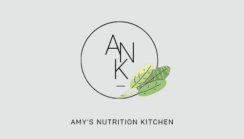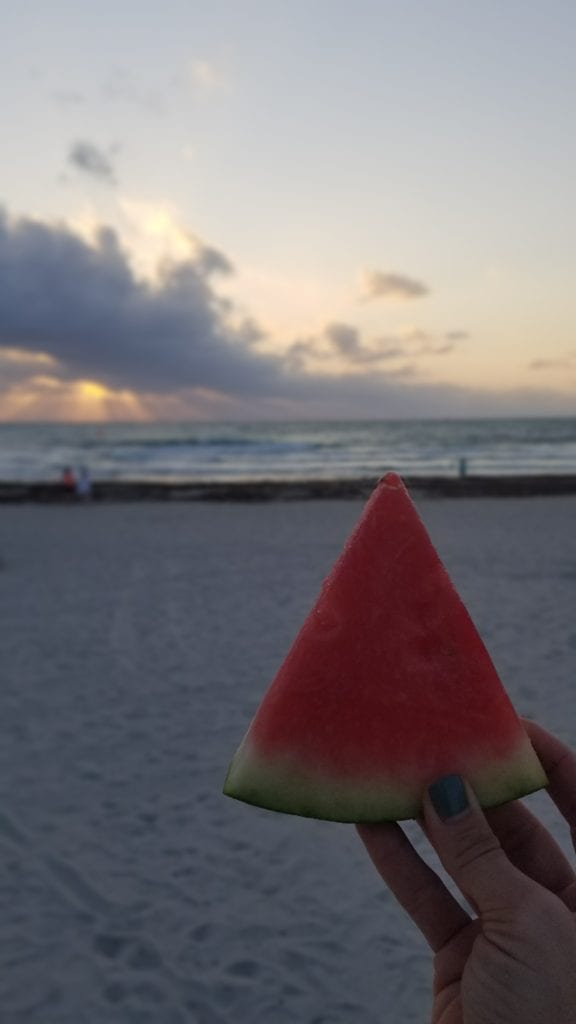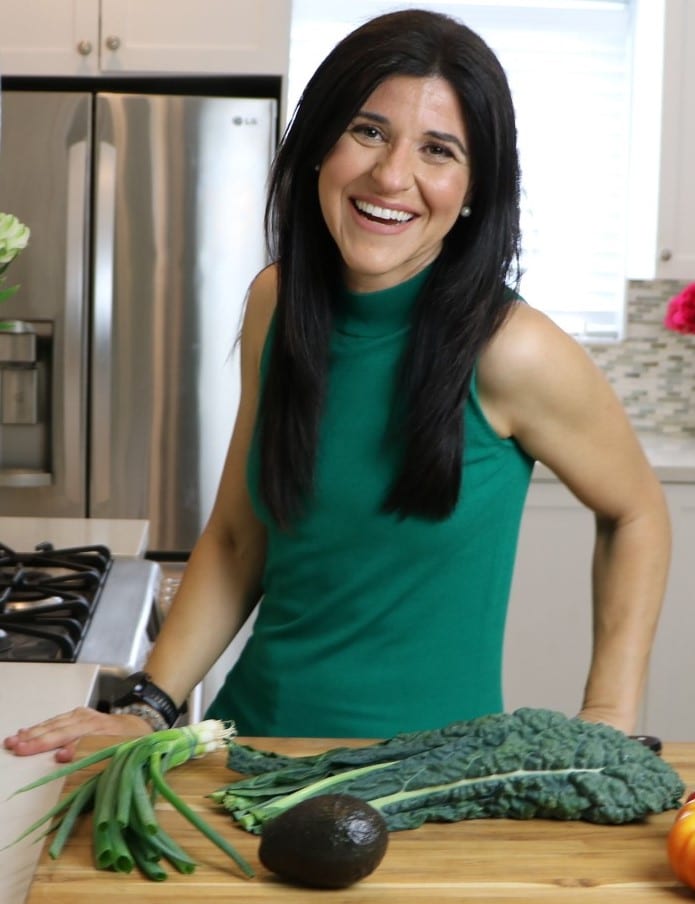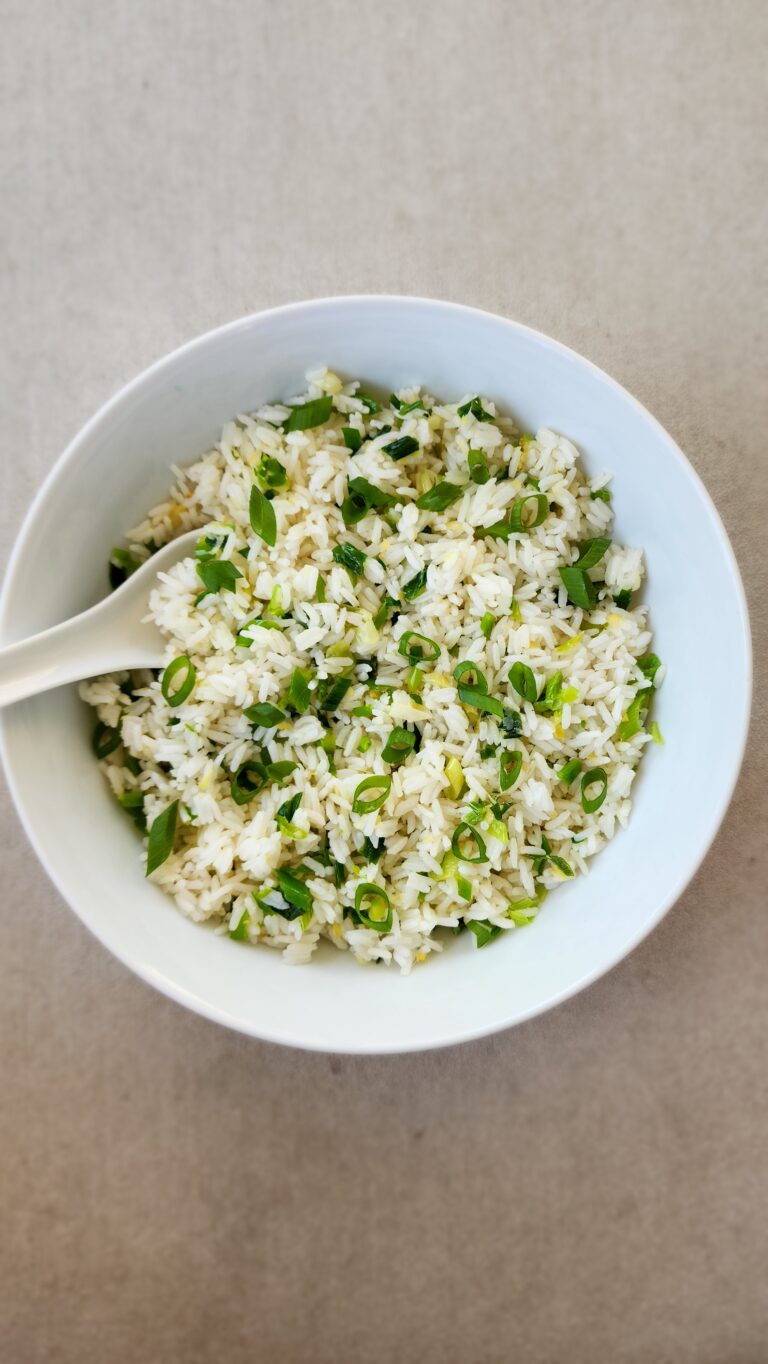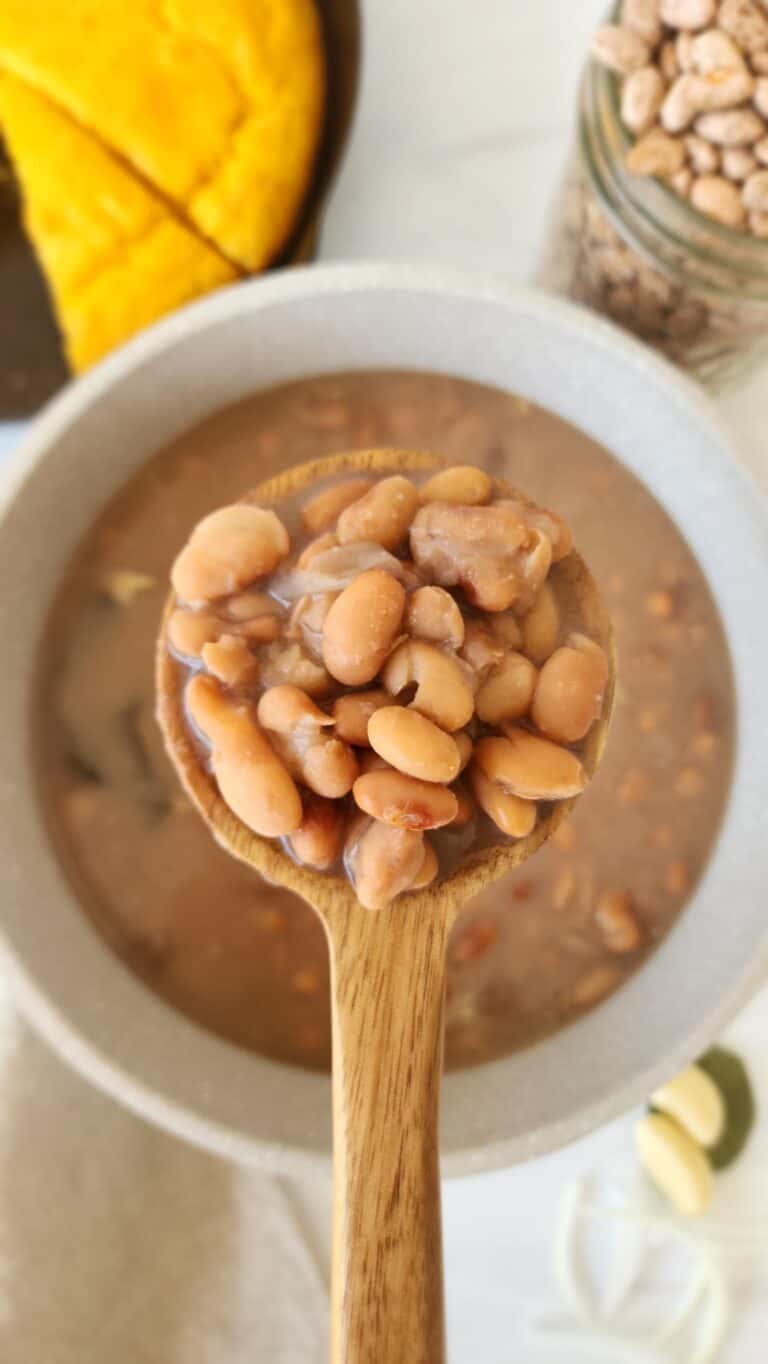It’s summertime in Florida. While we have humidity all year long, the humidity in the summer is shall we say, almost unbearable. I’ve lived in Dallas where it’s the dry heat and I wouldn’t say that’s any better (95° at 8 o’clock at night and I used to wait for it to cool off. Ha!) And then I lived in San Diego and well, there’s not much bad to say about their weather. Let’s be honest. But I digress, back to the humidity in Florida. Yesterday I was doing my usual run with my running partner, Marcela. We always start with a short warm-up and then take off. We’ve noticed the humidity getting progressively worse in the last few weeks. Yesterday, it had to have been 100% humidity (okay maybe it was only 65% humidity, but it felt like at least 80%!) Mid-way through the run we were both spent. We had to walk through one of our intervals to literally catch our breath. I knew that part of my problem was that I hadn’t been hydrated well enough. I also didn’t have the best food for fuel the day before. Sure we powered through and hit the “no talk” zone in order to finish our run. But I have to tell you that not only was I tired the rest of the day but I also was more sore than normal. Hydrate, hydrate, and then hydrate some more.
Staying hydrated is fundamentally important to a successful summer exercise regimen, or any activity for that matter. Your body is like a machine and it needs the fuel in order to function at a higher capacity. Let the engine run dry and well, you know the drill. So what are the recommendations that experts tell us? The key is to determine your individual fluid needs and learn to develop a hydration strategy based on those needs. Being hydrated maximizes your running performance and of course reduces the risk of injury. Here are some dos and don’ts of hydration:
Don’t Drink Caffeine Drinks
Soft drinks are never a good option during sports. They have no electrolytes so they’re not replenishing what the body needs. Like soft drinks, the so-called energy drinks also have huge amounts of caffeine – which can be a diuretic and can even have a laxative effect. This can worsen the dehydration experienced with heavy exercise. (I’ve actually seen this happen first hand at a race. Not pretty. I almost couldn’t believe what I was seeing. That’s why they say you HAVE to train with what you’ll use during the race; otherwise you might experience things like this). Instead, use the sports drinks as they will help you sustain your energy and recover from the workout.
Do Consider Sports Drinks During Intense Workouts
When you exercise heavily, you lose water and salts in your sweat. Gatorade was an advance over water because it added a number of electrolytes that were lost in sweat. Sports drinks are packed with the electrolytes potassium, magnesium, calcium, and sodium to provide energy during intense workouts –as well as competitors such as Powerade, All Sport, and Accelerade.
Take a swig of an electrolyte drink, and you make sure your body doesn’t overheat. You also give yourself an energy source – one that only serious athletes need. For people engaging in exercise in a hot environment and electrolyte replacer can be a lifesaver. Electrolyte drinks provide the body with fuel in the right quantities, so you don’t get an upset stomach. And the carbohydrates, sodium, and potassium, help move fluid more quickly out of the body and into the muscles, where it needs to be during exercise.
Read the label to determine which sports drink is best for you. Ideally, it will provide around 14 grams of carbohydrates, 28 mg of potassium, and 100 mg of sodium per 8-ounce serving. The drink’s carbohydrate should come from glucose, sucrose, and/or fructose – all of which are easily and quickly absorbed. It shouldn’t be carbonated, as the bubbles can lead to an upset stomach.
Don’t Bother With Electrolyte-Plus Drinks
Any add-ons to the basic electrolyte drink – choline, creatine, or something else –makes no difference to anyone except the professional who cares if they finish 1/10th or 1/100th of a second faster than the other person. Most everyday athletes are not going to notice or care.
As far as the protein drinks, unless you’re doing a grueling exercise, like biking the Tour de France, your body isn’t going to require that protein surge. If you’re eating protein in your meals, that’s much more protein than you’ll get in the drink (see my previous blog about protein requirements/needs.)
Do and Do Again: Drink Water
For less-intensive exercisers, water will do. Tap water works fine. When it comes to exercise and water, tap water and bottled water are all the same.
How Much Should You Drink?
While you’re exercising thirst is NOT a good indicator at all. If you’re thirsty, you’re already dehydrated. It’s important to drink plenty of liquids before, during, and after the activity. A good guideline to use when preparing for an outdoor workout is to drink about two cups of fluid two hours before the activity. That helps make sure you’re well-hydrated before you ever go outdoors.
Then, during the activity, try to drink 4-6 ounces every 15-20 minutes to keep your muscles well-hydrated. Drink something every 15 to 20 minutes, if possible. Since that’s not possible in all sports, you may have to drink more before you exercise, so you have enough in your body. Don’t try something new before competition. That can be a recipe for disaster! The body needs to get used to new fluids, so do it really, really, gradually. (Think of that laxative effect and I’m sure you won’t go overboard for fear of the aftermath.)
Last, drink up after you’re finished with your exercise. If you really want to be precise, weigh yourself before you start exercising and again when you’re finished. For each pound of water weight you lose, drink 20 ounces of fluid.
Beyond Hydration
Fluids are vital to help your muscles function throughout your activity – but so is your blood sugar. You need to eat a light meal or snack of at least 100 calories about an hour or so before your activity. The nutrients from the snack will help you perform better and keep hunger from interfering with your activity. The best snacks combine healthy carbohydrates, protein, and a small amount of fat. Fruit, yogurt, nuts, and granola bars are just a few examples.
So there it is. A few tips to help you hydrate during the summer and all year long. (We all know there aren’t really season changes here in Florida, it’s just differing levels of humidity to deal with). I wrote this piece as a reminder to myself. I knew before the run that I was dehydrated AND hungry. Not a combination for a good run. I paid the price after the run recovering all Saturday long. I won’t let that happen again.
(For those that know me well, I used to always teach the kids that our body gives us signals, if we pay attention to them. I should’ve paid more attention to my urine yesterday before I left for my run.
